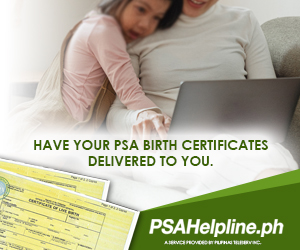Navigating the complexities of injury recovery can be a daunting task, especially when legal matters come into play. Whether you’ve been injured in a car accident, a workplace incident, or due to negligence, finding the right legal partner is crucial to ensuring you receive the compensation and support you deserve. From assessing their expertise and experience to evaluating their communication and approach, here are some essential steps to finding the perfect legal partner for your injury recovery journey.
Evaluating Expertise and Experience
The first step in finding the right legal partner for injury recovery is assessing their expertise and experience in the field. Look for attorneys or law firms with a proven track record in handling cases similar to yours. Specialization matters - someone experienced in personal injury law will help you build the strongest personal injury claim because they better understand the intricacies of your situation. Scrutinize their success rate, settlements obtained, and the complexity of cases they’ve handled. A legal partner well-versed in the nuances of injury law will know how to build a strong case in your favor.
Compatibility and Communication
Effective communication and compatibility with your legal partner are paramount. During initial consultations, pay attention to how well they listen to your concerns and respond to your questions. A good legal partner will not only possess excellent communication skills but will also make an effort to understand your unique circumstances. Open and transparent communication is vital for a successful attorney-client relationship, ensuring that you’re always aware of the progress and any developments in your case.
Approach and Strategy
Different attorneys might have varying approaches to handling injury cases. Some may prefer aggressive negotiation tactics, while others prioritize mediation and settlement. Understanding your potential legal partner’s strategy is vital to managing your expectations. Discuss their approach to your case, how they plan to gather evidence, negotiate with insurance companies, and, if needed, litigate in court. A legal partner with a well-thought-out strategy will increase your chances of a favorable outcome.
- Negotiation vs. Litigation: Clarify whether the legal partner favors negotiation or litigation. An attorney experienced in both can strategically navigate settlement talks while being prepared to escalate to court if necessary.
- Evidence Collection: Inquire about their plan for gathering evidence. A comprehensive approach should involve collecting medical records, accident reports, witness statements, and any other relevant documentation to build a strong case foundation.
- Insurance Company Interaction: Understand how they intend to communicate with insurance companies. An adept legal partner will skillfully negotiate on your behalf, ensuring that insurance companies offer fair compensation rather than lowball settlements.
- Contingency Plans: Discuss contingency plans in case the initial strategy doesn’t yield the desired outcome. A flexible attorney should be capable of adjusting the approach based on changing circumstances and legal developments to maximize your chances of success.
Resources and Support
A successful injury recovery often requires a comprehensive approach, including medical evaluations, expert testimonies, and thorough documentation. Ensure that your chosen legal partner has access to the necessary resources to support your case effectively. This includes collaborating with medical professionals, accident reconstruction experts, and other specialists who can strengthen your claims. A well-equipped legal team demonstrates their commitment to securing your rightful compensation.
Evaluating Past Client Experiences
One of the most insightful ways to gauge the capabilities of a potential legal partner is by examining their track record with past clients. Look for reviews, testimonials, and case studies from individuals who have gone through similar injury recovery processes with the exact attorney or law firm. Positive testimonials can provide a sense of reassurance, while negative experiences can serve as red flags. Additionally, consider reaching out to references provided by the legal partner to gain firsthand insights into their professionalism, responsiveness, and overall satisfaction of their clients.
- Online Reviews and Testimonials: Search online platforms, legal directories, and the law firm’s website for reviews and testimonials from past clients. These firsthand accounts can offer valuable insights into the attorney’s communication skills, negotiation abilities, and overall effectiveness in securing favorable outcomes.
- Case Studies and Success Stories: Some law firms showcase case studies or success stories on their websites. These narratives can provide detailed information about the challenges faced, strategies employed, and results achieved in similar injury recovery cases. Analyzing these stories can give you an idea of the legal partner’s approach and capabilities.
- Referrals and References: If the legal partner provides references, take the opportunity to contact these individuals directly. Engaging in conversations with former clients can provide you with candid perspectives on the attorney’s performance, professionalism, and commitment to their client’s well-being.
Assessing Ethical Standards and Reputation
Ethical standards play a crucial role in the legal profession. Ensuring that your chosen legal partner adheres to the highest ethical principles is essential. You can research whether they are a member of reputable legal organizations, or bar associations, or have received any disciplinary actions. A legal partner with a strong reputation within the legal community demonstrates their commitment to upholding ethical standards and providing quality representation. This reputation can also impact negotiations and dealings with opposing parties, potentially influencing the outcome of your case.
Initial Consultation and Fee Structure
Before making a final decision, schedule an initial consultation with your potential legal partner. Most reputable attorneys offer free initial consultations, during which you can discuss the specifics of your case and get a sense of their approach. Take advantage of this opportunity to ask about their fee structure - whether they work on a contingency basis (taking a percentage of the settlement) or charge hourly fees.
Make sure you understand the costs associated with their services and any potential additional expenses. An open discussion about fees will help you avoid surprises down the line and make an informed decision that aligns with your financial situation.
Finding the right legal partner for injury recovery involves a meticulous process of evaluation and consideration. By assessing expertise, compatibility, strategy, resources, past client experiences, ethical standards, and fee structures, you can confidently make a choice that aligns with your needs and priorities. Remember that this partnership is about more than just legal representation - it’s about entrusting someone to advocate for your well-being and fight for the compensation you deserve. With the right legal partner by your side, you can navigate the challenges of injury recovery with greater confidence and assurance.
 Copyright protected by Digiprove © 2023
Copyright protected by Digiprove © 2023







